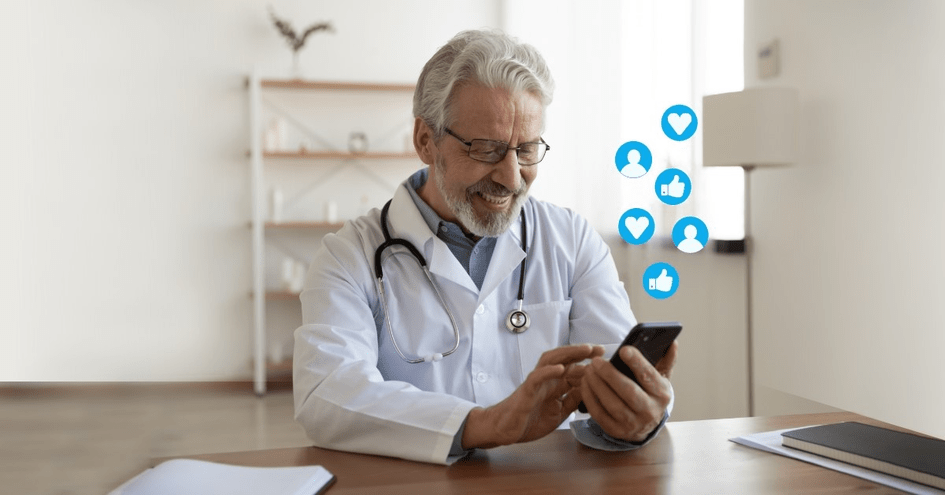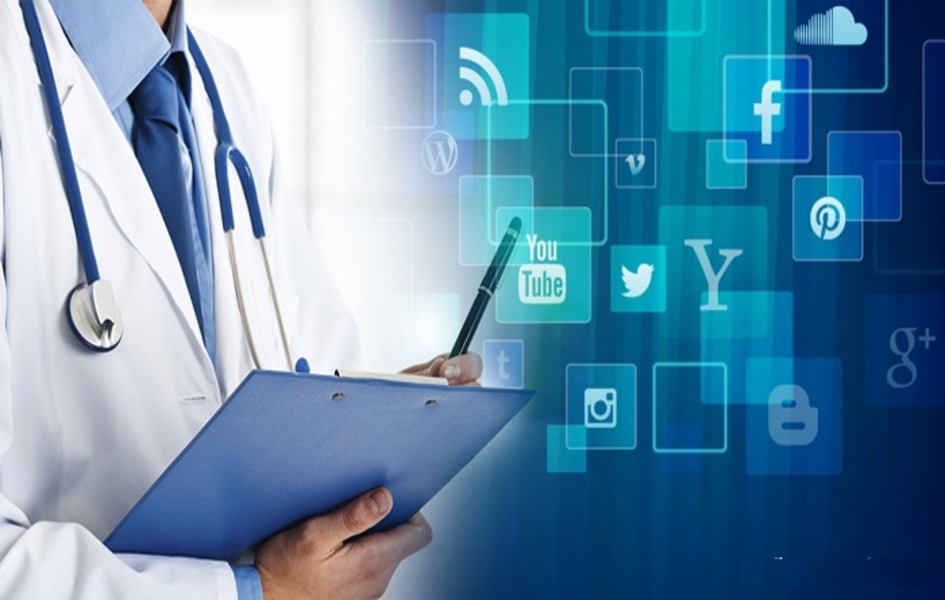Introduction to social media in Healthcare Industry :
In this digital age, social media has become an integral part of our lives. People use it for various purposes, including connecting with friends and family, sharing information, and seeking advice. Social media has also become an essential tool for healthcare professionals in this digital world. It has become mandatory for them to create a digital presence. And to get quick updates on recent developments, social media is the one-stop destination. It allows them to interact with patients, share information about treatments, help them learn about trends, and global awareness days to act upon and collaborate with other professionals. In this blog, we will discuss the different types of social media for healthcare professionals, the benefits of using social media in healthcare, the future role of social media in healthcare, and a conclusion on why we consider social media a must in this era for a healthcare professional.
Why should healthcare professionals use social media?
- To learn about the most recent medical discoveries/research in their field.
- Build an online presence.
- Network and collaborate with co-peers.
- Current and future trends
- Create a brand for their products or services.
- Secondary revenue generation.
- Stress management.

Most used social media by healthcare professionals :
There are various types of social media that healthcare professionals can use to connect with patients and other professionals. The most popular ones are:
Facebook: Facebook is a social networking site that allows Healthcare professionals to network with professionals, friends, and family, share information about treatments, answer patient questions, and connect with other professionals from their industry.
Twitter: Twitter is a microblogging site that allows healthcare professionals to share news, research, create healthy discussions with followers, and information about treatments.
LinkedIn: LinkedIn is a professional networking site that allows healthcare professionals to connect with professionals in their field, share research, and find job opportunities.
Instagram: Instagram is a photo and video-sharing social networking service that allows healthcare professionals to share their tips and insights on treatments and keep patients engaged with them, etc.
Benefits of using social media in Healthcare:
There are several benefits to using social media in healthcare. Some of them are:
1. Secondary Revenue: Social media allows healthcare professionals and organizations to market their brands and services. It helps them reach a larger audience and build a positive reputation, thereby helping them in secondary revenue generation.
2. Combat Misinformation: With the increase in social media content, there is a lot of misinformation on social media that may harm the average reader. Assume a patient receives erroneous content on social media and acts on it rather than receiving proper care, which may result in avoidable difficulties. Healthcare providers might use social media to spread the word about misinformation.
To know more about how to combat the misinformation, go here: https://uk.mymedicalpanel.com/blogs/the-medical-misinformation-available-online-is-insane-how-can-you-help-fight-it
3. Improved Patient Engagement: Social media allows healthcare professionals to connect with patients and answer their questions. It helps patients feel more connected to their healthcare providers, which can lead to better engagement and adherence to treatments.
4. Increased Patient Education: Healthcare professionals can use social media to share information about treatments, medications, and procedures with patients. This can assist patients in making more informed healthcare decisions.
5. Enhanced Collaboration: Social media allows healthcare professionals to collaborate and share information about treatments and procedures. This can lead to better patient outcomes and improved healthcare delivery.
The future role of social media in Healthcare
Social media is expected to play a key role in healthcare in the future. Social media will almost certainly play a larger role in patient interaction. Healthcare professionals must also use social media for virtual consultations and telemedicine services. In addition, social media is expected to play a growing role in healthcare marketing and branding.
My Medical Panel’s social media accounts:
We are social; we share relevant healthcare content, raise awareness on global healthcare days, and notify our followers when our paid contests are open so that they may join and receive prizes. We also post the most recent active research in their fields, tips on how to build a secondary income stream, and also share our blogs.
Follow us here:
- Facebook: https://www.facebook.com/MyMedicalPanel
- Instagram: https://www.instagram.com/mymedicalpanel/
- Twitter: https://twitter.com/MyMedicalPanel
- LinkedIn: https://www.linkedin.com/company/my-medical-panel/
Conclusion
In conclusion, social media has become an essential tool for healthcare professionals. It allows them to connect with patients and other professionals, share information about treatments, and collaborate on patient care. The benefits of using social media in healthcare are significant including improved patient engagement, increased patient education, enhanced collaboration, and improved branding. The future role of social media in healthcare is expected to be significant, and healthcare professionals are likely to use social media more extensively in the coming years. As social media evolves, healthcare practitioners must stay current on the newest trends and best practices to use social media effectively.
Opinion of MMPeer:
“Social media facilitates the sharing of ideas and information through virtual networks while Healthcare is the organized provision of medical care to individuals or a community.
So, social media can serve as an aid to patients. For example, it fosters their autonomy by complementing the information provided by healthcare professionals and by providing psychosocial support. Social media is used to stimulate conversation for brand building and improved service delivery.”- Dr. Daniel.
Are you a physician or healthcare practitioner?
Become a My Medical panel member and explore the many benefits of joining. Start your paid medical survey journey here - sign up











